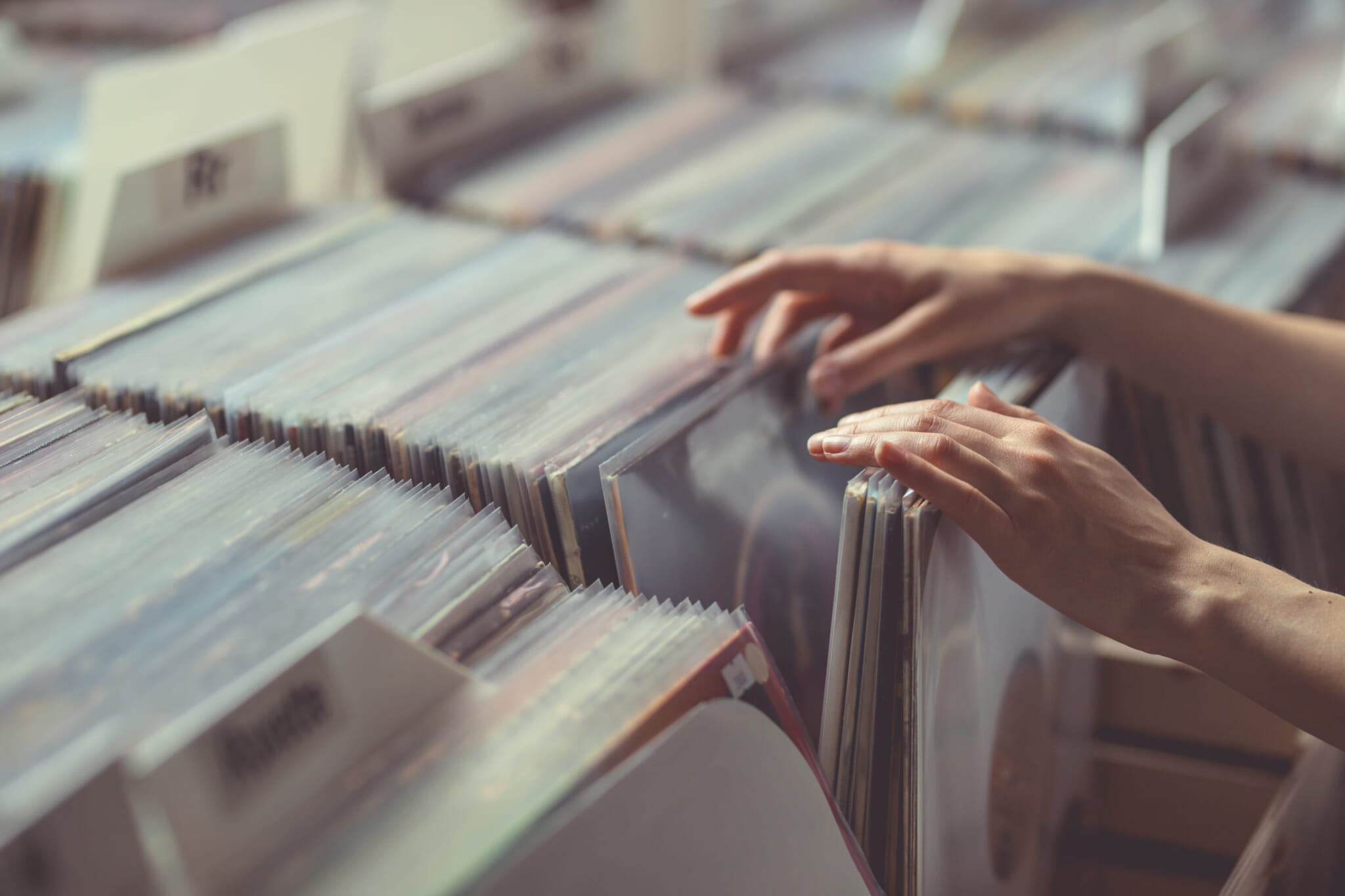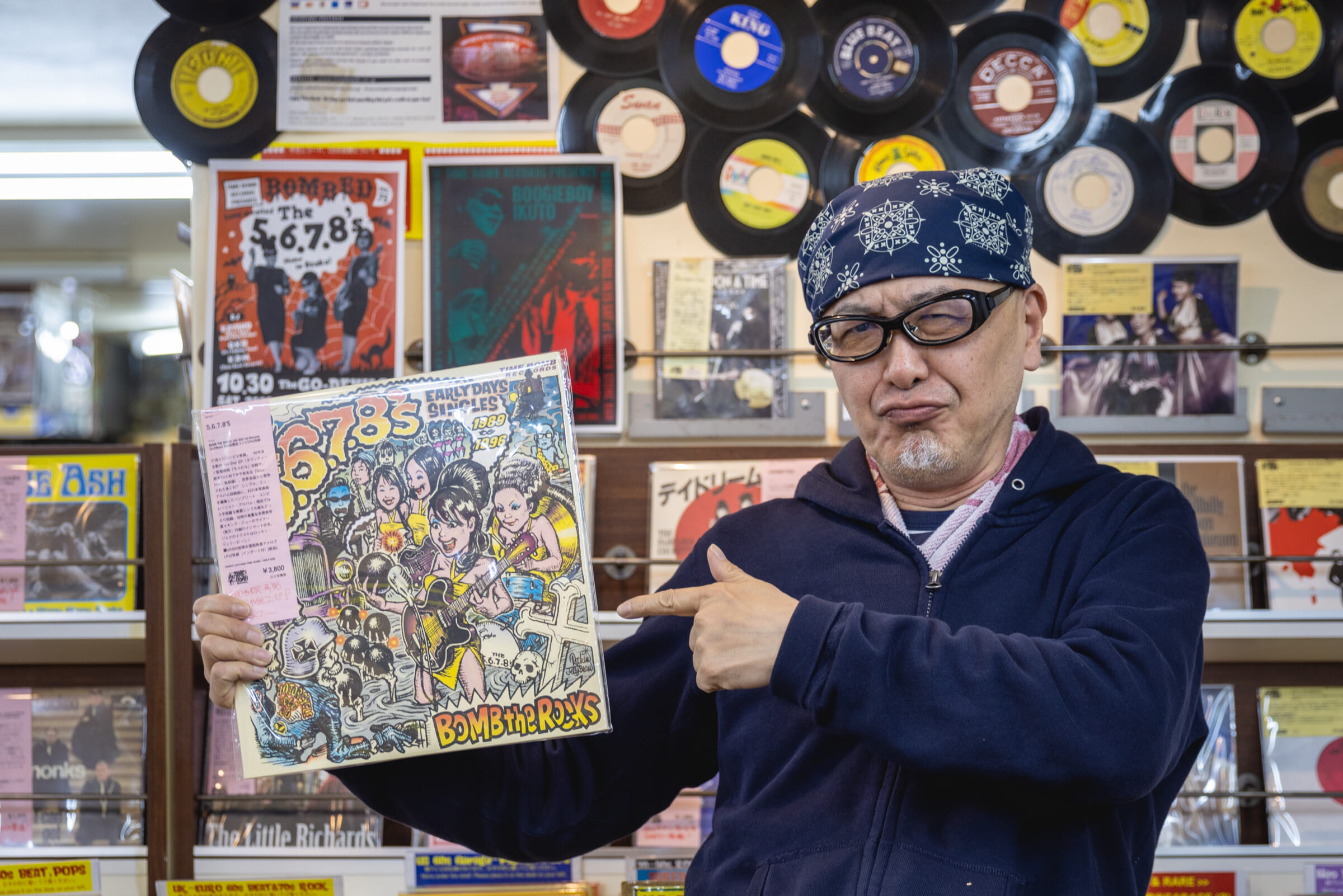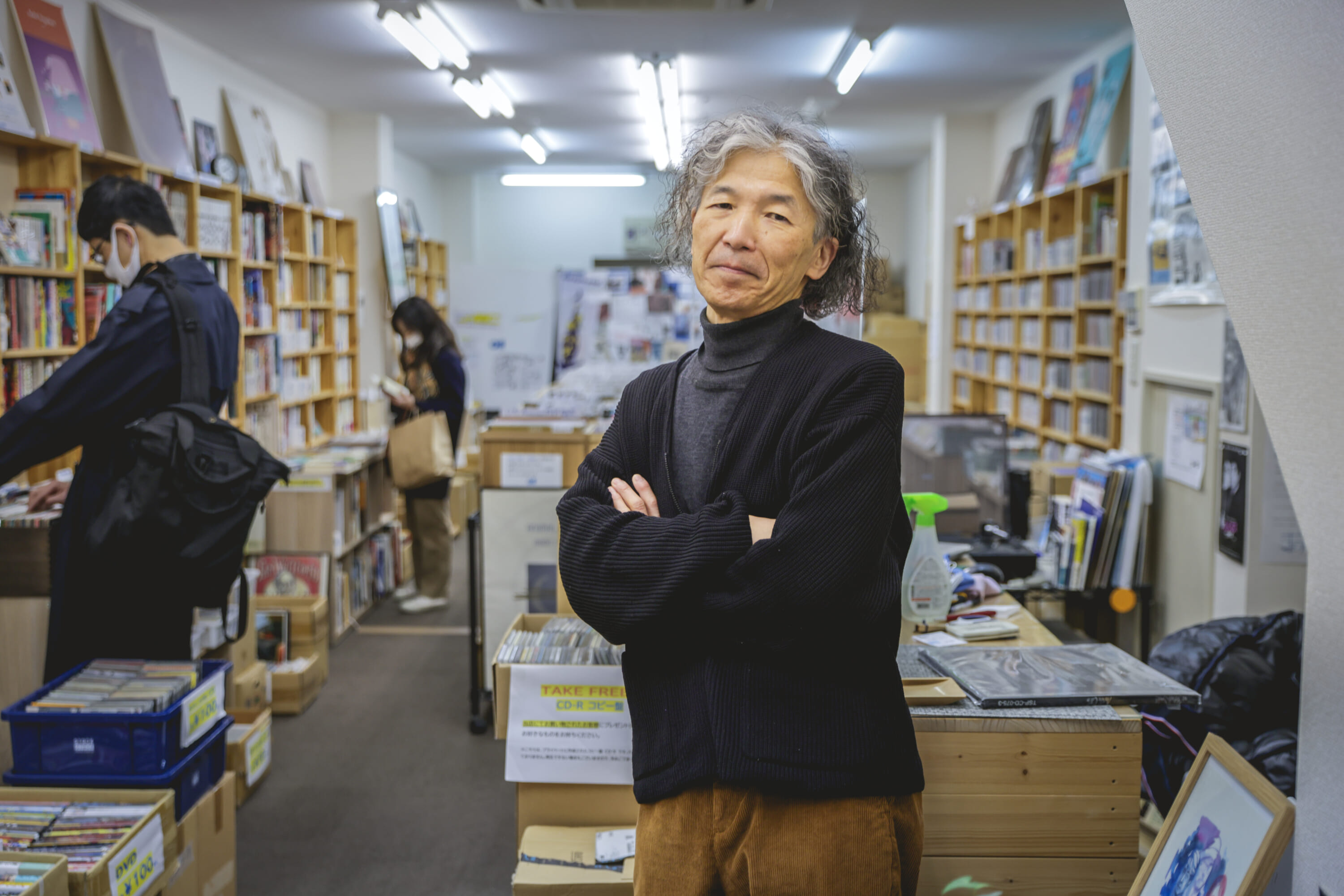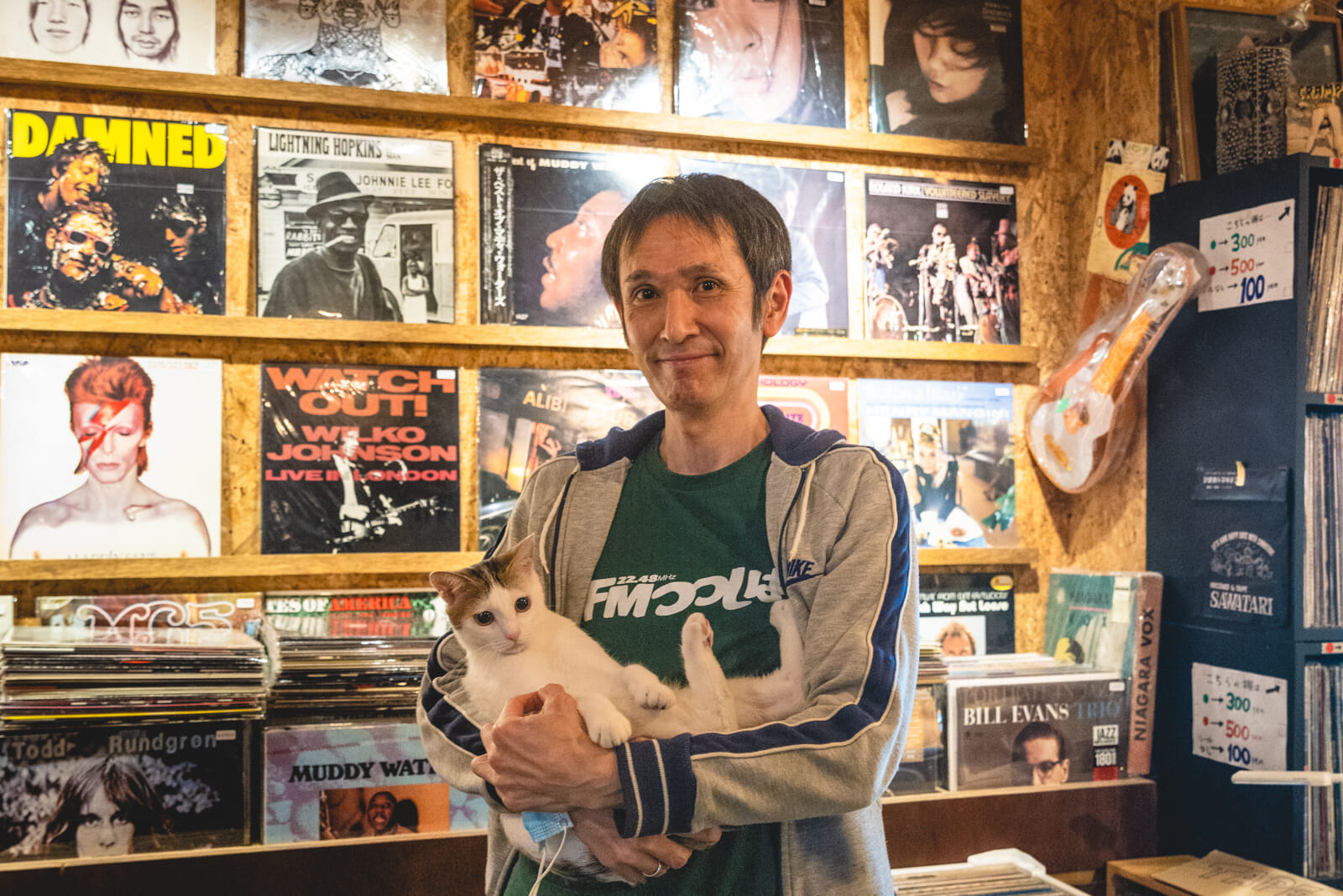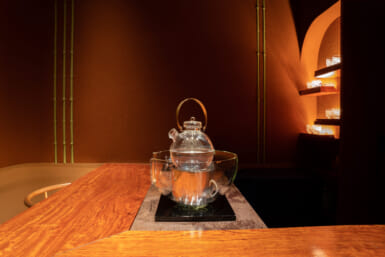Japan is experiencing a vinyl culture renaissance. According to the Recording Industry Association of Japan, both sales and production numbers have increased more than tenfold since 2013. This is turning the country into a mecca for second-hand shopping too.
In-the-know shoppers are attracted by two key peculiarities of the local market. First, Japanese vinyl fans tend to lavish care and attention on their collections, keeping both the records and their jackets in near pristine condition. Second, Japanese releases were often bound with a paper sash called an obi with the title and other info in Japanese, a practice unique to this country. Their relative rarity makes pressings with an intact obi particularly coveted for collectors.
The product isn’t the only idiosyncrasy, though. Like so many niche places, second-hand record shops in Japan have their own unique culture, which may be a bit different than the shops overseas buyers are used to. We asked Tokyo-based photographer and lifelong LP fan Brian Scott Peterson of Tokyo Record Style and Top 5 Records, a DJ-focused podcast event, to share some tips on how to blend in with the local crowd, score some bargains and avoid irritating any proprietors.
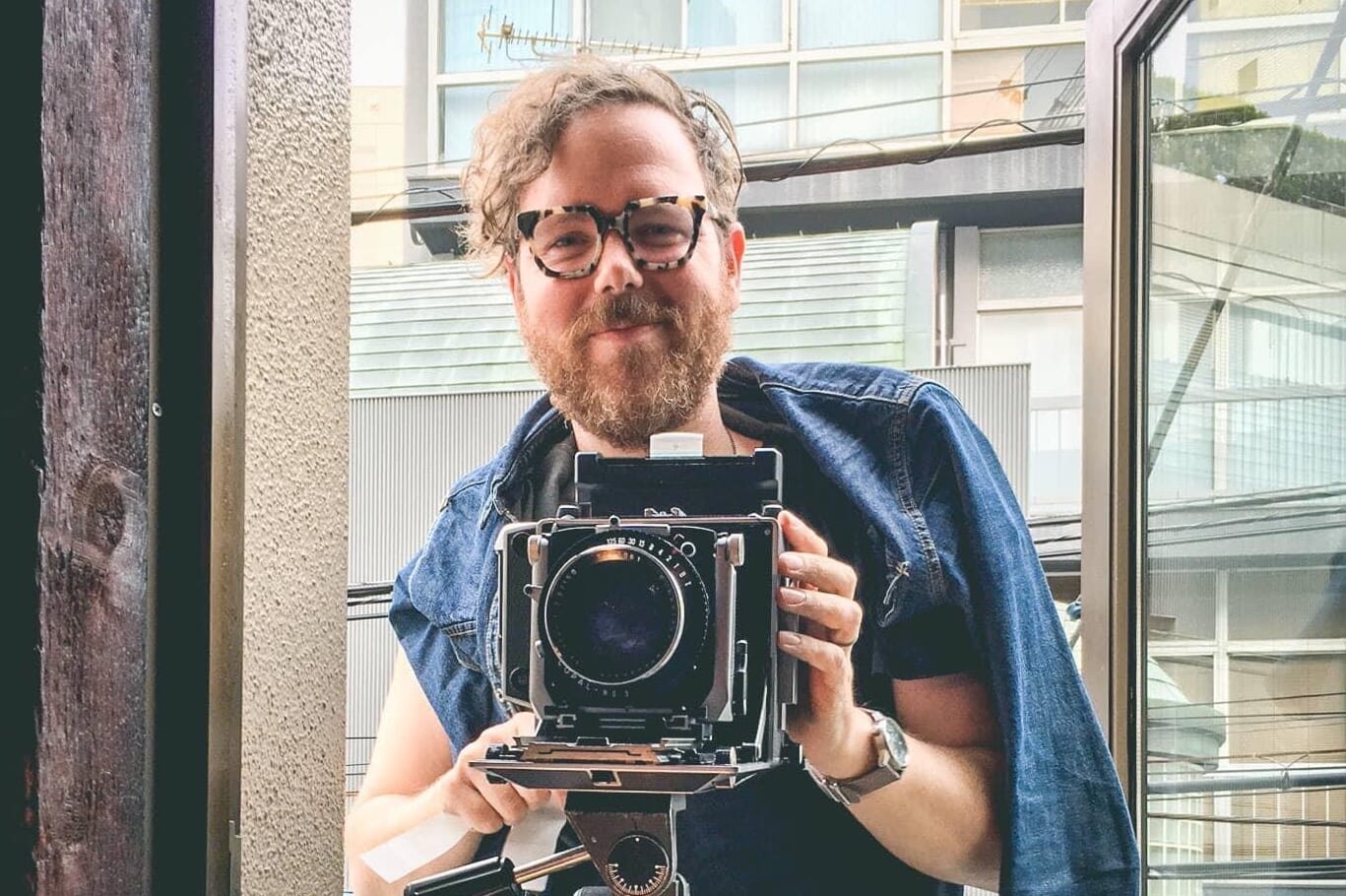
Brian Scott Peterson of Tokyo Record Style
Do: Shop outside the city center
Central Tokyo has some great record shops, but real gems get snapped right up in high-traffic shops. Peterson recommends going to what he calls the Goldilocks Zone: those satellite neighborhoods in greater Tokyo still easily reached by public transport but outside of the central Yamanote ring. Places like Fuchu, Machida, Omiya or Kawasaki. Basically, choose a major station on a main commuter line and find the nearest shop. “The prices are often much better too,” he adds.
Don’t: Haggle
Speaking of prices, Japan doesn’t have a haggling culture. The price listed is the hard price and you’ll quickly make yourself persona non grata by trying to negotiate it down. Store owners tend to price their wares fairly because they are often diehard fans who want to pass on their beloved vinyl to someone who’ll appreciate it. Connect with them as a fellow enthusiast and they’ll want you to go home with something you love.
“Hang out for a while and have a nice chat, you might get a bonus,” says Peterson. Building good relationships with record store owners and staff is key.
“I love to buy the records that are playing inside the record stores,” he continues. Often, these records aren’t intended for sale, but the clerk is so pleased that what they’ve curated has caught your attention that they’ll part with it.
“You have this moment with them. And then the next time that you go there, they’re like, ‘hey you’re that guy that bought that record.’” he says. “And then you always love that record, not necessarily for the music that’s on it, but for this memory that puts you in a place and time and gives some context to your life and just gives you a bit of delight in an otherwise mundane world.”
Don’t: Buy too much
Store owners told Peterson that some overseas buyers come in and just buy up all their stock, looking to resell them back home. A good problem to have, you’d think. The stores are businesses after all. But never forget, record store owners tend to be fans first.
As an example, Peterson points to Anchor Records in Shinjuku, which changed to an appointment-only business model after Japan reopened its borders. The owner told him it was a response to overseas visitors buying too much and being rude about any pushback.
“One of the things these old-timers do: they collect records their whole lives while earning a living and a retirement in other careers. And now they just want to ride out the rest of their lives having a little record shop,” says Peterson. “They want to see these records go to good homes, to people who care about them, not just people who are necessarily going to flip them.”
You can still go on a buying spree but try to spread the wealth around, Peterson suggests, particularly at smaller, independent shops.
Do: Be polite
This one seems like a no-brainer, but Peterson says he’s witnessed a few instances of tourists being rude and demanding to staff. It’s become a topic of concern in the Tokyo vinyl scene recently.
“People are fearful a little bit that some are coming here like piranhas. They’ve all discovered that Japan is one of the nicest places, if not the nicest place in the world, to go record shopping,” he says. “But if people are going to come here and be part of the record store culture, they need to think like the Japanese and kuki yome (read the room). Try to help cultivate the scene here and not just use it and pilfer from it.”
This starts with basic politeness and treating staff like people and fellow enthusiasts, but also includes participating in Tokyo’s wider vinyl culture. Share your finds on social media. Promote the shops you love. Talk to the people you meet about their interests and get their recommendations. Also, go to a DJ event.
“Vinyl miraculously came back because it’s awesome,” says Peterson. “If we all work together and find the best ways to enjoy this hobby, then we can sustain it for a long time.”

Record store shoppers by Brian Scott Peterson
Peterson’s Top 3 Stores
Asked for a few recommendations for record shops, Peterson quickly rattles off an impressively long list of favorites but, under duress, allows me to narrow it down to three.
- Flash Disc Ranch (Shimokitazawa): “Call it, ahem, ‘organizationally challenged,’ but in the most delightful way, and its owner, Tsubaki, is a Tokyo legend.”
- Coconuts Disk (Kichijoji): “Owner Yajima has been running the shop for 20 years and knows all about indie rock, city pop, ’90s cool grunge and shoegaze. I can’t go past without going in.”
- Ella Records (Hatagaya): “The people who work there are really friendly, and it has a kind of homey DIY vibe.”
Learn more about Japan’s thriving vinyl culture:

